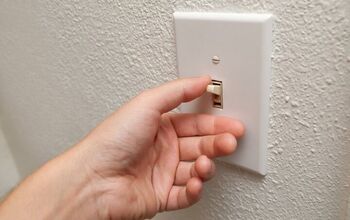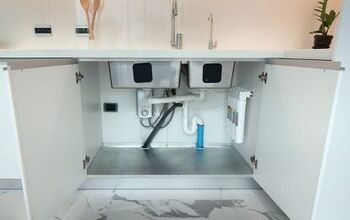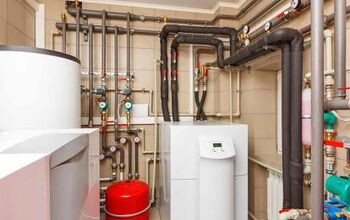How Long Can A Generac Generator Run Continuously?

While there are many different brands of generators on the market, Generac is known for being one of the highest quality brands. Generators are a handy appliance to have in case of emergency.
If you have a 500-gallon tank that’s propane-based on your Generac Generator, you could run your generator for an entire week, 24 hours a day straight. The amount of time you can run your generator highly depends on how large your tank is and how many watts it uses to power your home. Though, if you hook up your generator to a natural gas line, it’ll run indefinitely.
Today we’re going to talk about all things Generac generators to give you a good idea of whether or not you’d benefit from using one. There are plenty of other options out there, and I’ve included a comparison chart to help you find the perfect generator for your family.
Do You Need a Generator Installation Service?
Get free, zero-commitment quotes from pro contractors near you.

Things to Know about Generac Generators
One of the best things about Generac generators is that they can give up to 3,000 hours of use. If your power is out for a week, you’ll likely only use the generator for a few hours per day. As long as they’re properly cared for, you can expect one of these units to last you for a few decades.
Generac generators are built with an automatic transfer switch that will turn itself on. This sends an electric feed from the utility company, allowing the unit to automatically turn on if your home loses power. When the power is restored, the generator will turn itself off again.
Maintenance
Believe it or not, once the Generac unit is installed, there’s nothing for you as a homeowner to do. You do want to have a certified technician come by annually to change the oil.
You can also have a regular service check-up to ensure that the machine is running as it should. The last thing you want is to be in a time of need and realize your generator is out of order.
Think of this as another appliance, like your air conditioner or furnace. It’s a simple engine that doesn’t get used too often. You could even have one day a year where you service all of your annual appliances.
If you’re wondering if your generator is working properly, you’re in luck. Many Generac generators run a self-diagnostic test around once a week. This doesn’t take more than ten minutes and lets you know that everything is functioning as it should.
Fuel Type & Run Time
If you have access to a natural gas line that you can hook your generator up to, your Generac generator will run indefinitely. So, if you’re wondering about the run time of your generator, this will depend on the type of fuel that the generator is consuming. Though, if you do not have access to natural gas, the run time will depend on the size of the fuel tank and a couple other variables.
With that said, when it comes to choosing a Generac generator, you should keep the following run time variables in mind:
- Fuel tank size
- Fuel consumption rate
- Average generator load
If you choose to purchase a portable generator from Generac, you’ll want to pay close attention to the size of the fuel tank. Whereas, with permanent backup generators, you can typically as large a tank as you desire. You have the option to choose from portable tanks and stationary ones that either go underground or somewhere above-ground on your property. The most common sizes for these takes are:
- 20 pound tank (5 gallons)
- 33 pound tank (8 gallons)
- 100 pound tank (25 gallons)
- 200 pound tank or two 100 pound tanks (50 gallons)
- 420 pound tank (100 gallons)
- 500 gallon tank
- 1,000 gallon tank
If you notice that your Generac generator isn’t lasting long enough, it’s likely that the tank is too small to suit your needs.
Types of Generators
Here are the main types of generators and the good and the bad that come with each of them.
Standby
Pros:
- Seamless switching between systems
- Dependable thanks to a continual flow of power
- Ensures food won’t spoil
- Can be used with multiple electronics running
- Reduces the chance of frozen pipes in the winter
- The transfer switch acts as a surge protector
- Allows for a discount on homeowner’s insurance
Cons:
- Must be stored outdoors due to carbon monoxide output
- They’re noisy
- Installation must be done professionally
- They can be more expensive than other types
- Regular maintenance is required
Diesel
Pros:
- It provides more energy due to using diesel
- Fuel efficient
- Steady power supply
- Diesel generators are known for being higher quality
- No spark plugs or wires required
- Lower maintenance cost
- Longer lifespan than natural gas
- Safer than generators that use spark plugs
Cons:
- Considerably more expensive due to the high cost of diesel
- Can be noisy
- Diesel generators are usually quite large and bulky
- Diesel is bad for the environment and considered a major pollutant in some cities
Natural Gas
Pros:
- Natural gas generators are cleaner
- When hooked up to a natural gas line, generators run forever
- Less expensive to run
- More efficient than other fuel sources
- Better for the environment
- No pungent odor
- Readily available in every city and town
Cons:
- Some natural disasters can affect gas pipelines
- It’s incredibly explosive
- Can be expensive to run for a long period of time
- Emits greenhouse gases
- Non-renewable energy source
Portable
Pros:
- Cost-effective
- Can be used anywhere
- Great for an emergency backup
- Compact and ergonomic
Cons:
- Can be noisy
- Releases a smelly exhaust
- Gets hot while running
- Limited use due to less wattage
- Manual start only
Solar
Pros:
- Practically silent
- Renewable energy source as long as there’s sun
- Clean energy
- Easy to use and install
Cons:
- Charges slowly
- Can only release AC output
- Expensive upfront cost
Cost of Operation for a Generator
It’s always a good idea to know the cost of running a generator. There are a handful of aspects that can change how much you’ll be paying. This includes the wattage and the fuel source.
Here’s what you can expect to pay for the most common types of generators.
Gasoline Generator
Gasoline generators are the most commonly owned. For a standard five-kilowatt generator, it will use around .75 gallons per hour. The price for gas varies greatly depending on where you live, but the average price for one gallon as of September 2020 is $2.17.
If you run the generator for a day, it would use around 18 gallons of gas. This would cost you around $39 per day. This can get expensive over time but rarely is a generator needed 24 hours a day.
Diesel
Diesel is a little more expensive than natural gas. The average cost for a gallon of diesel is $2.41 as of September 2020. A 20-kilowatt generator uses up to 1.6 gallons an hour when running a full load.
If you use a diesel generator for 24 hours straight, you can expect to shell out over $92 per day.
Propane Generator
If you’re looking for a cleaner option that’s better for the environment, opt for a propane generator. A 20-kilowatt generator burns around 3.45 gallons an hour. Propane units burn through fuel much quicker than alternatives.
In the United States, you can expect to pay around $2.50 for a gallon of propane. Running a propane generator for 24 hours will cost you over $200. It will consume about 83 gallons of fuel.
Propane generators are often the cleaner energy option out of the bunch. The trade-off is that propane burns more quickly in a generator. A 20-kilowatt generator would
Alternatives to Generac Generators
While Generac is one of the most popular generator brands on the market, there are plenty of other great options. Below you’ll get a look into some of the alternatives and what you can expect to pay on average for one of their 2200-watt units.
| Brand | Average Cost |
| Honda | $1,050 |
| Yamaha | $1,000 |
| Champion | $450 |
| Duromax | $549 |
| Briggs and Stratton | $483 |
| Generac | $679 |
Do You Need a Generator Installation Service?
Get free, zero-commitment quotes from pro contractors near you.

Related Questions
The engine in a Generac generator can withstand about 3,000 hours of use, meaning it can survive for 125 full days of use before it nears the end of its life cycle. Since you’ll only be without power for a couple days each year, these 3,000 hours can last you between 25 and 30 years. Though, this assumes that you’ve been properly maintaining your Generac generator.
What size generator is needed to power a house?If you want to run critical household equipment like kitchen appliances, lighting, or heating, you’ll need a powerful generator. Those that have between 5,000 and 7,500 watts should do the trick. For folks in an RV, a generator with 3,000 to 4,000 watts will work just fine.
Are whole house generators tax deductible?It’ll be music to your ears when you hear that whole house generators are indeed tax-deductible. There are specific requirements that need to be met in order to get this kind of tax relief. Be sure to ask a tax professional if you’re unsure if you meet said requirements.
Does a whole house generator increase home value?Are you looking at selling your home in the future? Installing a generator will increase your home’s resale value. Based on a series of consumer reports, it will likely increase the price by up to 5%.

Kirstin is a passionate writer who loves helping people learn new things when it comes to home improvement. When she's not behind a keyboard, she enjoys DIY projects, crafts, spending time with her pets, and making videos. She hopes that with all she writes, someone is finding a solution to their home improvement needs.
More by Kirstin Harrington



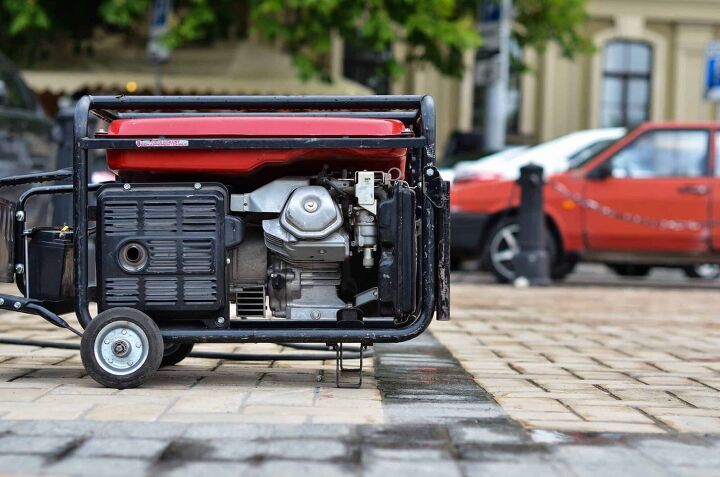






![The 5 Best Angle Grinders – [2022 Reviews & Buyer's Guide]](https://cdn-fastly.upgradedhome.com/media/2023/07/31/9071326/the-5-best-angle-grinders-2022-reviews-buyer-s-guide.jpg?size=350x220)



![10 Best Cordless Leaf Blowers – [2022 Reviews & Ultimate Guide]](https://cdn-fastly.upgradedhome.com/media/2023/07/31/9070789/10-best-cordless-leaf-blowers-2022-reviews-ultimate-guide.jpg?size=350x220)

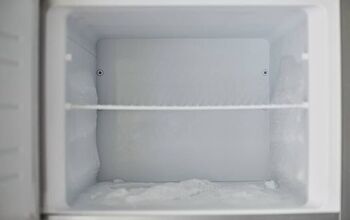
![Standard Dining Room Table Dimensions [for 4, 6, 8, 10 and 12 People]](https://cdn-fastly.upgradedhome.com/media/2023/07/31/9074335/standard-dining-room-table-dimensions-for-4-6-8-10-and-12-people.jpg?size=350x220)



